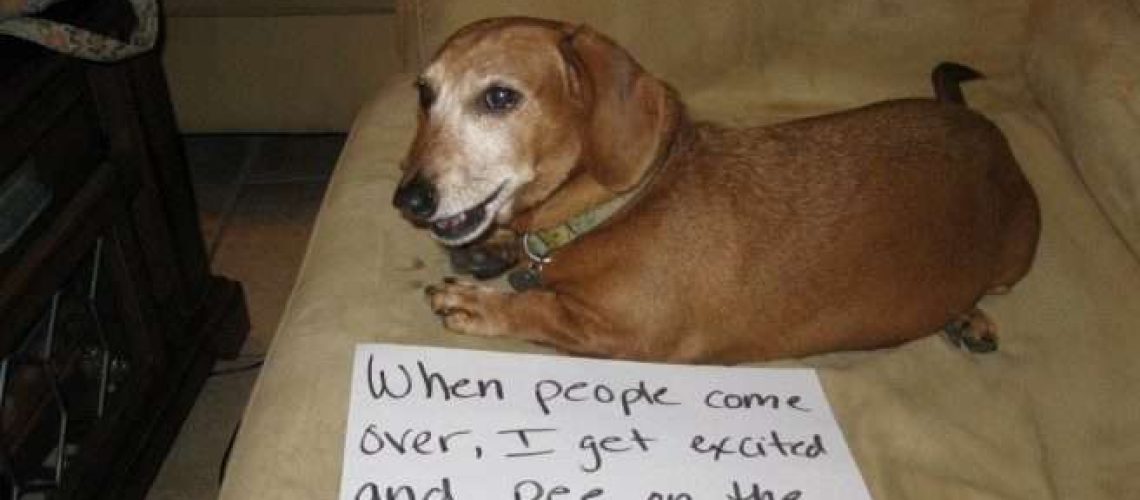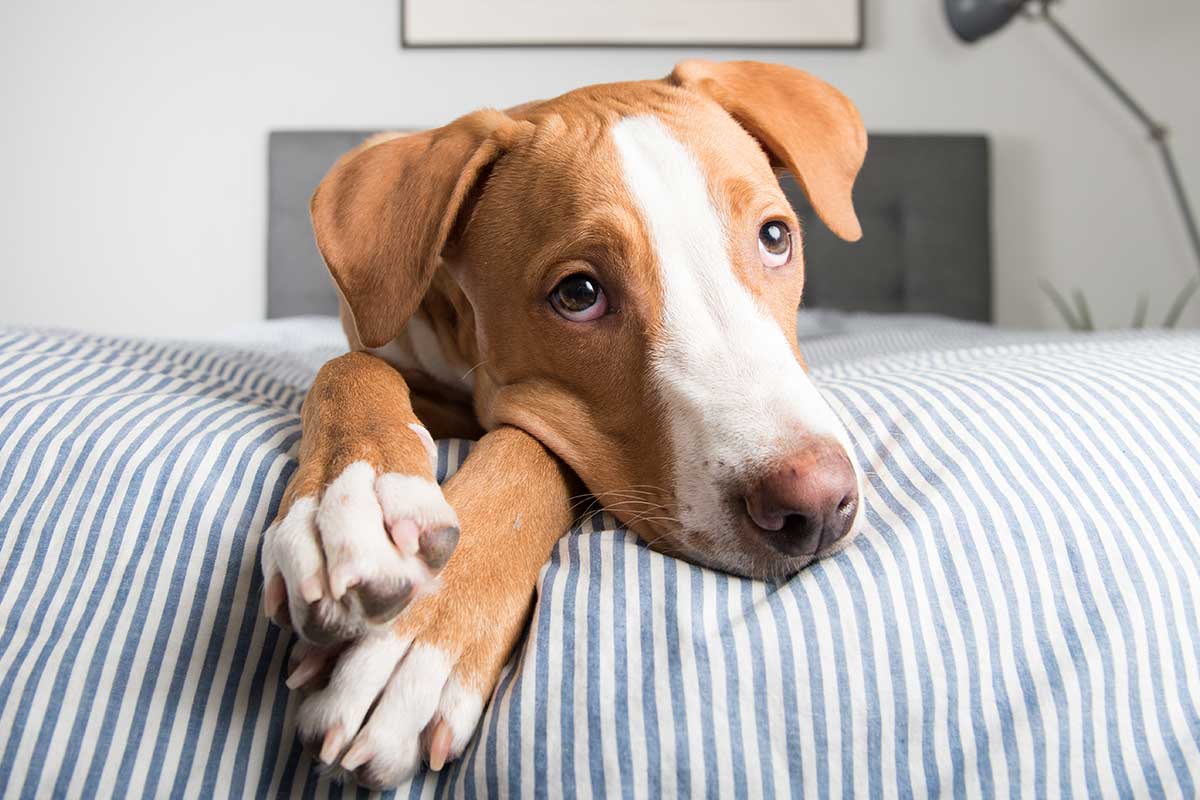Key Takeaways:
- Excitement and fear can both cause dogs to urinate involuntarily.
- This behavior is more common in puppies and young dogs, but can also occur in adult dogs.
- It is a natural instinct for dogs to mark their territory with urine, which can be triggered by excitement or fear.
- Peeing when excited or fearful is not a sign of disobedience or lack of training.
- Consistent training and positive reinforcement can help manage and reduce this behavior over time.
Introduction:
Have you ever wondered why dogs sometimes pee when they're excited or fearful? It may seem like a strange behavior, but understanding the reasons behind it can actually provide valuable insights into our furry friends' emotions and well-being. By exploring this topic, we can uncover the secrets behind this peculiar habit and learn how to better care for our canine companions. So, let's dive into the fascinating world of dog behavior and discover why they sometimes can't help but leave a little puddle behind.
Why do dogs sometimes pee when they are excited or scared?
Understanding why dogs urinate when they're excited or frightened
Have you ever noticed that your dog pees a little when they get really excited or scared? It might seem strange, but there's actually a reason behind it. When dogs experience strong emotions like excitement or fear, their bodies release adrenaline, which can affect their bladder control. Just like how some people might feel the need to go to the bathroom when they're nervous, dogs can have a similar reaction.
When a dog gets overly excited or frightened, their muscles can tense up, including the muscles around their bladder. This tension combined with the surge of adrenaline can cause them to lose control and accidentally pee. It's not something they do on purpose - it's just a natural response to intense emotions.
Why do some dogs struggle to control their bladder during strong emotions?
While most dogs are able to control their bladder even in moments of excitement or fear, some may struggle more than others. There could be several reasons for this:
- Lack of training: Some dogs may not have been properly trained to hold their bladder in stressful situations. Without proper training and reinforcement, they may have difficulty controlling themselves.
- Anxiety: Dogs that are prone to anxiety may be more likely to lose control of their bladder during moments of high stress. Anxiety can make it harder for them to manage their bodily functions.
- Past experiences: If a dog has had negative experiences in the past that were associated with fear or excitement, it could contribute to their difficulty in controlling their bladder. Traumatic events can have long-lasting effects on a dog's behavior.
Understanding why dogs urinate when they're excited or frightened
When dogs get excited or scared, they may involuntarily urinate due to a lack of control over their bladder. This is more common in puppies and smaller breeds because their bladders are still developing. The excitement or fear triggers a response in their nervous system, causing the muscles around the bladder to relax and release urine. It's similar to how humans might feel the need to go to the bathroom when they're nervous.
The Role of Hormones
Hormones also play a role in this behavior. When dogs experience strong emotions like excitement or fear, their bodies produce adrenaline and cortisol, which can affect bladder control. These hormones increase blood flow and heart rate, but they can also cause relaxation of the muscles that hold urine in the bladder.
Possible Solutions
To help manage this issue, it's important to provide consistent training and socialization for your dog. Gradually exposing them to different situations and stimuli can help desensitize them and reduce anxiety-induced accidents. Additionally, reinforcing positive behaviors with rewards can encourage better control over their bladder.
- Consistent training: Teach your dog basic commands like "sit," "stay," and "go potty" so they understand what is expected of them.
- Socialization: Introduce your dog to various people, animals, and environments from an early age to build confidence and reduce anxiety.
- Positive reinforcement: Reward your dog with treats or praise when they exhibit good behavior or successfully control their bladder during exciting or fearful moments.
Remember that patience is key when addressing this issue. With time and proper training, many dogs can learn to better manage their bladder during moments of high excitement or fear.

Why do some dogs struggle to control their bladder during strong emotions?
Some dogs may struggle to control their bladder during strong emotions due to a combination of factors. One factor is the physical development of their bladder muscles. Puppies and smaller breeds have smaller bladders that are still developing, making it harder for them to hold urine when they experience intense emotions.
The Impact of Genetics
Genetics can also play a role in a dog's ability to control their bladder during emotional moments. Some dogs may inherit weaker bladder muscles or an overactive nervous system, making them more prone to involuntary urination.
Training Techniques
To help your dog gain better control over their bladder, it's important to establish a consistent routine for bathroom breaks and reinforce positive behaviors.
- Regular bathroom breaks: Take your dog outside at regular intervals throughout the day, especially after meals or periods of excitement.
- Crate training: Use a crate as a safe space for your dog when you're unable to supervise them closely. This can help prevent accidents and teach them to hold their bladder for longer periods.
- Calming techniques: Explore techniques such as massage, aromatherapy, or music therapy to help relax your dog during stressful situations.
By implementing these strategies and being patient with your furry friend, you can help them develop better control over their bladder even in moments of heightened emotion.

Exploring why puppies pee more when they're happy or afraid
Puppies tend to pee more when they're happy or afraid because their bladders are still developing and they have less control over their bodily functions compared to adult dogs. When puppies experience happiness or fear, it triggers an adrenaline rush that affects their nervous system and bladder muscles.
Puppy Bladder Development
A puppy's bladder is not fully developed until they are around six months old. During this time, their bladder muscles are weaker and have a smaller capacity, making it harder for them to hold urine for extended periods. As a result, any strong emotion can cause involuntary urination.
Positive Reinforcement Training
To help puppies manage their bladder control during moments of happiness or fear, positive reinforcement training is crucial.
- Consistency: Establish a regular schedule for bathroom breaks and stick to it. Take your puppy outside after meals, naps, playtime, and whenever they show signs of needing to go.
- Encouragement: Praise and reward your puppy with treats or affection when they successfully urinate outside. This reinforces the desired behavior and helps them associate going potty with positive experiences.
- Supervision: Keep a close eye on your puppy to anticipate when they may need to relieve themselves. If you notice signs like sniffing the ground or circling, quickly take them outside.
With patience and consistent training, puppies can gradually develop better control over their bladder as they mature.

Helping your dog stop peeing when overly excited or scared
If your dog tends to urinate when they are overly excited or scared, there are several strategies you can try to help them overcome this behavior. One effective approach is to work on desensitizing your dog to the triggers that cause their excitement or fear. This involves gradually exposing them to these triggers in a controlled and positive way, while rewarding them for calm behavior.
Another helpful technique is to teach your dog alternative behaviors that they can engage in instead of urinating. For example, you can train them to sit or lie down when they feel overwhelmed, which can help redirect their focus and reduce their anxiety. It's important to be patient and consistent with these training methods, as it may take time for your dog to learn new behaviors and overcome their instinctive response.
Desensitization Training
In desensitization training, you will gradually expose your dog to the situations or stimuli that trigger their excitement or fear. Start by introducing them to a mild version of the trigger and observe their reaction. If they remain calm, reward them with treats or praise. Gradually increase the intensity of the trigger over time while continuing to reward calm behavior. This process helps your dog build tolerance and reduces their likelihood of urinating in these situations.
Redirecting Behaviors
To redirect your dog's behavior away from urination during moments of high excitement or fear, teach them an alternative action such as sitting or lying down. Use positive reinforcement techniques like treats and praise whenever they perform the desired behavior instead of urinating. With consistent practice, your dog will learn that engaging in these alternative actions is more rewarding than urinating.
Signs to predict if your dog might urinate from excitement or fear
It can be helpful to recognize the signs that indicate your dog may urinate from excitement or fear. By being aware of these signs, you can anticipate and manage situations to prevent accidents from occurring.
Body Language Cues
- Tail tucking between the legs
- Shaking or trembling
- Cowering or hiding
- Panting excessively
- Pacing or restlessness
Vocalization and Urination Indicators
- Whining or whimpering
- Barking excessively
- Lifting a leg to mark territory (in males)
- Squatting to urinate (in females)
Can dogs outgrow the tendency to pee during moments of high excitement or fear?
In many cases, dogs can outgrow the tendency to urinate during moments of high excitement or fear as they mature and gain more confidence. However, this is not always guaranteed, and some dogs may continue to exhibit this behavior throughout their lives. It's important to note that each dog is unique, and their ability to overcome this tendency may vary.
If your dog continues to struggle with urinating in these situations despite your efforts, it may be beneficial to seek guidance from a professional dog trainer or behaviorist. They can provide personalized advice and develop a training plan tailored specifically for your dog's needs.
In conclusion, dogs may pee when they're excited or fearful because it's a natural response to their emotions. It's important for dog owners to understand and be patient with their pets during these situations.
Why does my dog pee when scared?
When your dog feels shy, nervous, or threatened, it may urinate as a way to prevent those situations from happening again. Additionally, a happy greeting or playful behavior can also cause the dog to urinate without being aware of it. In order to avoid getting scolded or feeling threatened, your dog may start to urinate submissively.
Do dogs grow out of excited peeing?
Dogs may exhibit the behavior of urinating when excited as a way to display submission or convey other emotions. This behavior is more prevalent in puppies and fortunately, most dogs will naturally stop this submissive peeing behavior as they grow older. However, there are some adult dogs that still urinate inappropriately.
Will my dog pee from anxiety?
Dogs that experience anxiety can become so worked up that they end up urinating or defecating inside the house, even if they are typically trained to go outside.
What age do dogs grow out of excited peeing?
Submissive urination is when a dog displays submissive behavior, such as rolling over or showing its belly, when greeting someone unfamiliar. This behavior is typically outgrown by puppies by the time they are one year old, regardless of any intervention.
How do I build my dog's confidence?
To help boost your dog's overall confidence, engage them in activities that stimulate their mind and strengthen your bond through training. One way to achieve this is by using food puzzles during feeding time and introducing them to nose work, which is not only enjoyable for dogs but also their owners. These activities can contribute to building your dog's self-assurance.
How do I know if my dog is anxious or excited?
Dogs that are experiencing stress may produce a bark that is deeper and more gruff-sounding than their usual bark, while barking that indicates happiness is typically higher in pitch. Additionally, stressed dogs may bark for longer durations than they typically would.

















